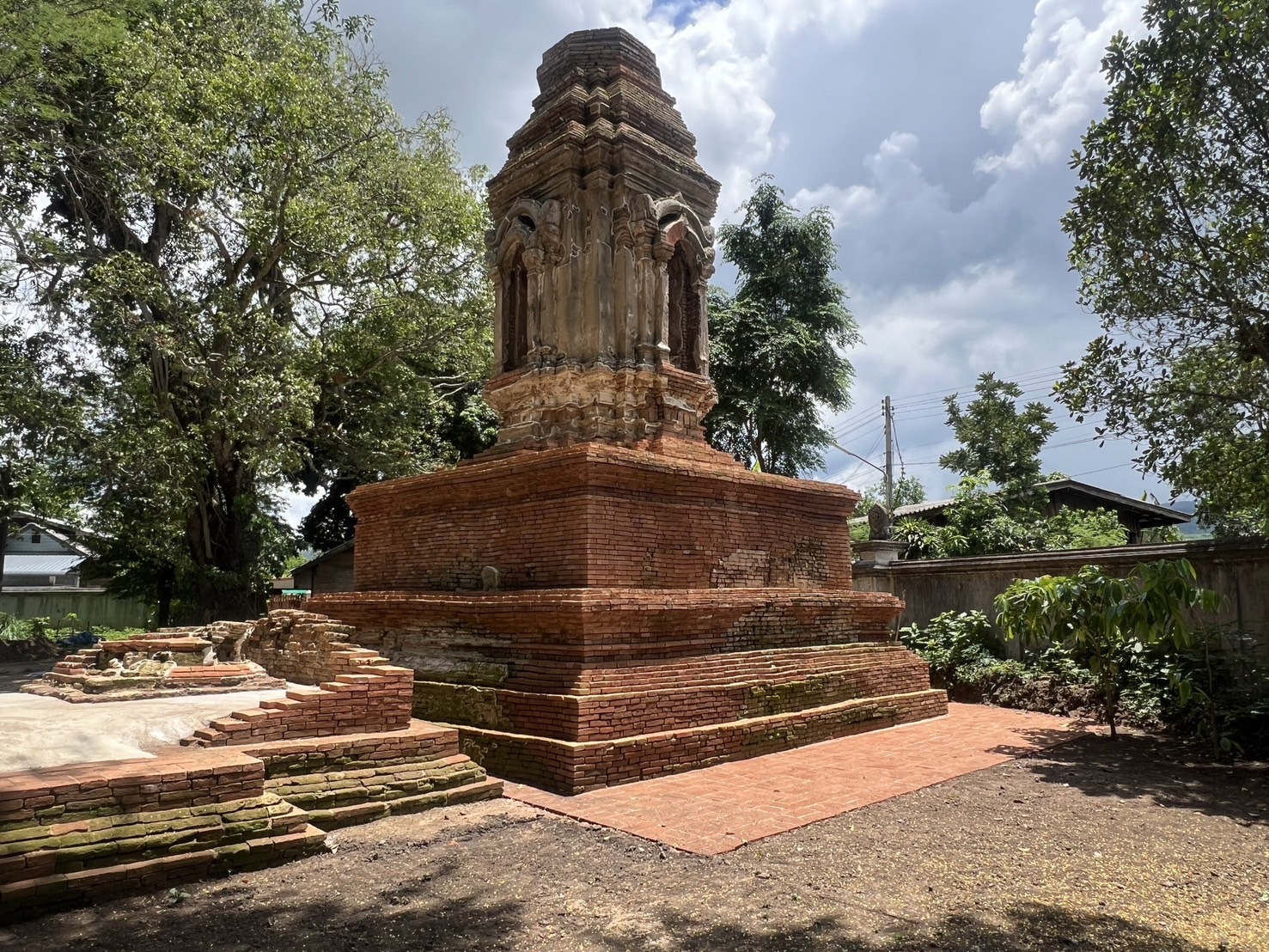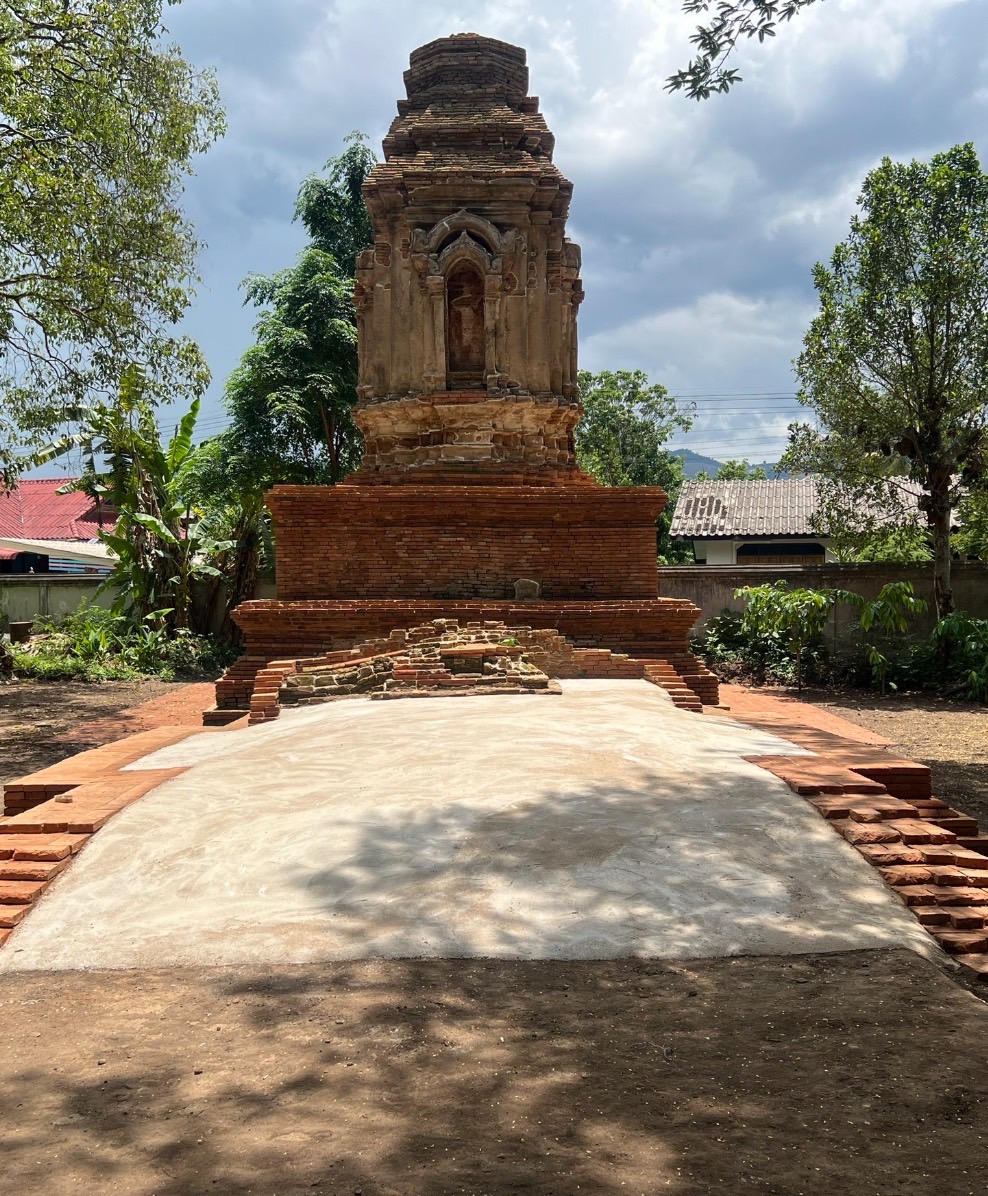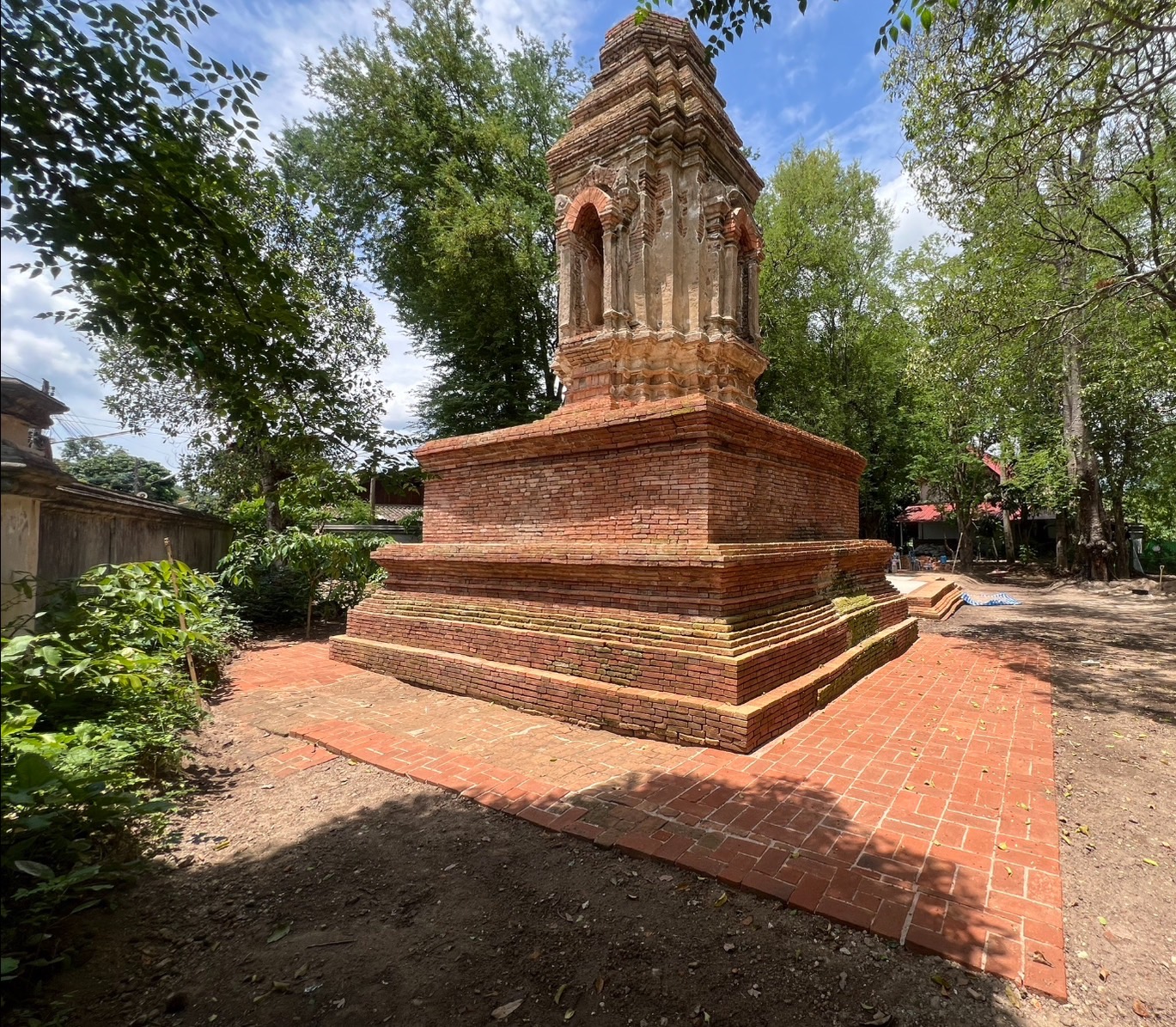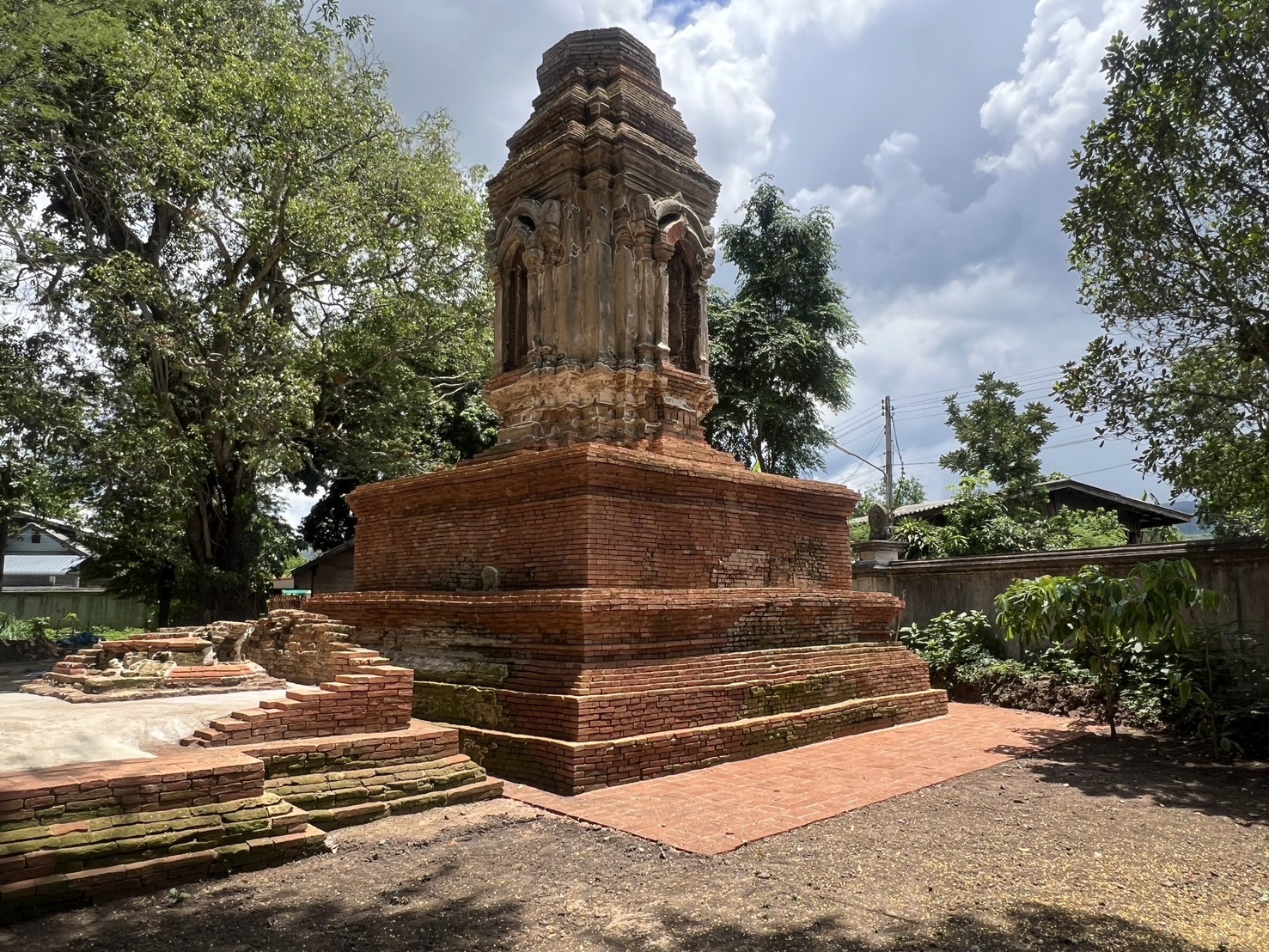โบราณสถานวัดบ้านเจียง
โบราณสถานวัดบ้านเจียง ตั้งอยู่ภายในวัดบ้านเจียงด้านทิศตะวันตก เดิมเรียกว่า "วัดปราสาท" มีโบราณสถานวางตัวตามแนวทิศตะวันออก - ตะวันตก ประกอบด้วยเจดีย์และวิหาร เจดีย์เป็นทรงปราสาทยอดระฆัง มีส่วนฐานบัวคว่าบัวหงายแบบล้านนา รองรับส่วนเรือนธาตุยกเก็จประดับซุ้มจระนาทั้งสี่ด้าน กรอบซุ้มจระนาตกแต่งเป็นวงโค้งประดับมกรคายนาคที่ปลายวงโค้ง เหนือขึ้นไปเป็นชุดบัวคว่า - บัวหงาย รองรับชุดหน้ากระดานแปดเหลี่ยม ส่วนยอดพังทลาย รอบฐานเจดีย์พบหลักฐานเป็นลานประทักษิณล้อมรอบทั้ง ๔ ด้าน วิหารอยู่ด้านทิศตะวันออกของเจดีย์ มีแผนผังรูปสี่เหลี่ยมผืนผ้า วิหารคงเหลือองค์ประกอบเพียงโถงประธานและฐานชุกชี
จากรูปแบบเจดีย์ วิหาร และโบราณวัตถุที่พบจากการขุดค้น - ขุดแต่งทางโบราณคดี พุทธศักราช ๒๕๖๔ อาทิ เครื่องถ้วยเนื้อแกร่งจากแหล่งเตาภาคเหนือ (แหล่งเตาพาน จังหวัดเชียงราย และแหล่งเตา สันกาแพง จังหวัดเชียงใหม่) กาหนดอายุโบราณสถานวัดบ้านเจียง (เจดีย์ - วิหาร) ราวพุทธศตวรรษที่ ๒๑ -๒๒ หรือประมาณ ๓๐๐ - ๔๐๐ ปีมาแล้ว
Wat Ban Jiang Monument is located on the west side of Ban Jiang Temple. It was originally called "Wat Prasat". The ancient ruins are oriented east to west and consist of the principal chedi and vihara. The principal chedi is Stupa in prasat form with bell-shaped on top . The lowest part of this chedi is an Lanna lotus-based style which supports the chedi’s square indented body. Each side of the body features a curved shape with the Makara disgorges the Naga decoration at the end of curved roof above the niche. The upper part of the niche is a set of octagonal shaped. Unfortunately, the top of the chedi collapsed. A circumambulatory path surrounds the chedi. The vihara is on the east of the chedi which is rectangular shape. This vihara remains a feature of main hall and a brick pedestal supporting the principal Buddha image.
According to the architectural styles and archaeological evidence by archaeological excavations in 2021, stone wares were found which indicates that they were produced in the Northen Ceramics Kilns (Phan Kiln in Chiang Rai Province and San Kamphaeng Kiln in Chiang Mai Province). Wat Ban Jiang Monument can be dated between the 16th – 17th century or approximately 300 – 400 years ago.
(จำนวนผู้เข้าชม 1445 ครั้ง)






